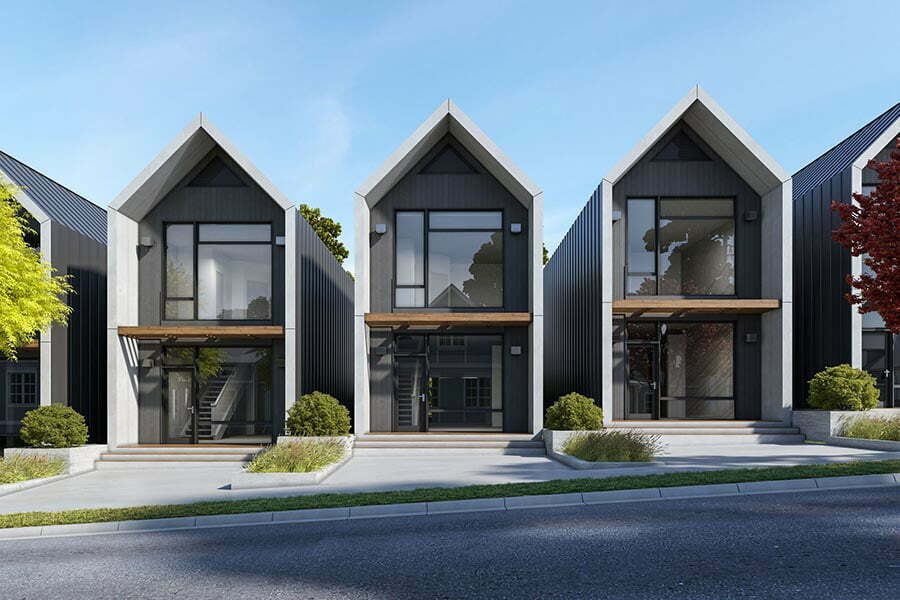
Training and Education in Modular Building Techniques Explored
In recent years, the construction landscape has been transformed by the advent of modular building techniques. This innovative approach not only reduces construction time but also enhances sustainability, making it a popular choice among home enthusiasts and industry professionals alike. To fully harness the potential of this method, it is crucial to invest in comprehensive training and education in modular building techniques.
Understanding the fundamentals of modular construction is essential for anyone interested in this field, whether you’re a budding architect, a seasoned contractor, or a homeowner looking to build your dream house. This article provides a deep dive into the world of modular building, exploring the necessary training and educational pathways that lead to expertise in this area.

The Importance of Modular Building
Modular building has revolutionized the way we approach construction. By allowing for off-site assembly of building sections, it reduces the time needed on-site. This method not only speeds up the construction process but also minimizes disruptions and environmental impact. Understanding these benefits is a key part of any modular building education.
Benefits of Modular Construction
One of the major advantages of modular construction is its efficiency. By constructing modules in a controlled factory environment, builders can avoid weather-related delays and ensure higher quality control. This results in a more predictable timeline and budget, which is a significant benefit for both builders and clients.
Training Programs for Modular Building
To excel in the field of modular construction, individuals need to engage in specialized training programs. These programs are designed to equip learners with the skills necessary to design, plan, and implement modular projects successfully.
Online Courses and Certifications
Numerous online platforms offer courses in modular construction. These courses cover a range of topics from basic principles to advanced design techniques. Certifications from reputable institutions can also enhance a professional’s credentials, making them more attractive to employers.
Hands-On Workshops
In addition to online courses, hands-on workshops provide invaluable practical experience. These workshops allow participants to apply theoretical knowledge in real-world scenarios, thereby solidifying their understanding of modular techniques.
Industry Conferences
Attending industry conferences is another excellent way to learn about the latest trends and innovations in modular building. These events bring together experts from around the world to share their insights and experiences.
Choosing the Right Educational Path
Deciding on the right educational path involves understanding your career goals and the specific skills you wish to acquire. For those interested in designing modular homes, architectural studies might be the best fit. Meanwhile, those who wish to oversee construction projects may benefit from a project management focus.
Architectural Studies
Architecture programs that focus on modular design teach students how to create aesthetically pleasing and functional modular structures. These programs often include courses in sustainable design, which is a key component of modern modular building.
Project Management
Project management courses geared towards construction provide students with the skills to effectively manage the unique challenges of modular projects. This includes logistics, scheduling, and coordination between different teams.
Future of Modular Building
The future of modular building is bright, with advancements in technology continuing to drive innovation. As the demand for sustainable and efficient building solutions grows, so too does the need for skilled professionals in this field.
Technological Innovations
Emerging technologies such as 3D printing and advanced robotics are poised to further enhance the efficiency and precision of modular construction. Staying abreast of these developments is crucial for anyone involved in the industry.
Sustainability Focus
As environmental concerns become more pressing, the emphasis on sustainable construction practices will continue to grow. Modular building is inherently more sustainable than traditional methods, making it an attractive option for eco-conscious builders and homeowners.
Conclusion
Investing in training and education in modular building techniques is essential for anyone looking to thrive in the modern construction landscape. With the right skills and knowledge, professionals can lead the way in creating efficient, sustainable, and innovative structures.
For more detailed insights on cultural perceptions of modular homes or preparing your land for a modular home, check out this resource and this guide. Additionally, learn more about the intersection of technology and modular design here.
For more on what modular means and its applications, visit Tallbox Design and Quality Homes.

FAQs
What is modular building?
Modular building is a construction method where a structure is built off-site in sections or modules, which are then transported to the final site for assembly.
Why is training important in modular building?
Training is crucial to ensure that professionals have the necessary skills to design and implement modular projects effectively, maximizing efficiency and sustainability.
Where can I learn about modular building techniques?
Learning opportunities include online courses, hands-on workshops, and industry conferences. Additionally, architectural and project management programs often offer relevant coursework.
This article contains affiliate links. We may earn a commission at no extra cost to you.